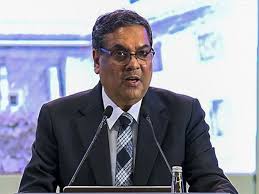NEW DELHI: Asserting his powers as the ‘master of roster’, Chief Justice of India (CJI) Sanjiv Khanna on Tuesday said no oral submissions for urgent listing and hearing of cases will be allowed henceforth.
A day after taking over as the CJI, Justice Khanna urged lawyers to either send emails or written letters for urgent listing of cases, instead of following the usual practice of orally mentioning of cases in the morning before the listed matters. “No oral mentioning anymore…Only email or written slip/letters. Just state the reasons for urgency,” CJI Khanna told lawyers after a few of them sought permission to mention certain matters for urgent listing.
His predecessor Justice DY Chandrachud could not strictly implement it as despite his repeated instructions, lawyers would usually gather in his court at 10.30 am to mention cases for urgent listing and hearing. Justice Khanna, who was sworn in as the 51st CJI by President Droupadi Murmu at the Rashtrapati Bhavan on Monday, has outlined a citizen-centric agenda for judicial reforms as he said ensuring easy access to justice and equal treatment to citizens regardless of their status was the constitutional duty of the judiciary.
With a focus on criminal case management, the CJI pledged to prioritise reducing trial durations, adopting a systematic approach, and ensuring that legal procedures are not gruelling for citizens. He also highlighted the importance of promoting mediation to resolve disputes efficiently and provide timely justice.
Justice Khanna has identified pressing challenges facing the judiciary, including the need to reduce case backlogs, make litigation affordable, and simplify complex legal processes. Recognising that the justice system must cater to all citizens, he outlined a vision to make courts more approachable. “Making judgments comprehensible to the citizens and promoting mediation will be a priority,” he had said on Monday.
“Judiciary is an integral, yet distinct and independent part of the governance system. The Constitution trusts upon us the role of constitutional guardian and protector of fundamental rights,” he added.


